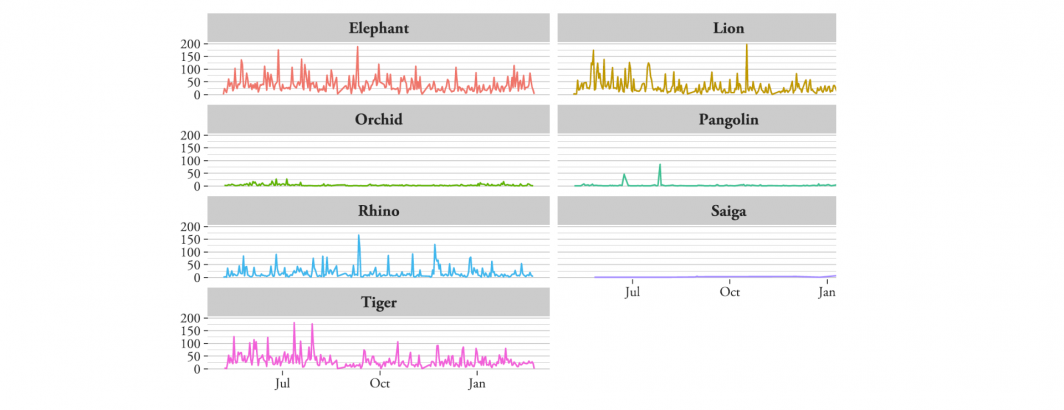
Human factors are increasingly recognised as central to conservation of biodiversity. Despite this, there are no existing systematic efforts to monitor global trends in perceptions of wildlife. With traditional news reporting now largely online, the internet presents a powerful means to monitor global attitudes towards species. In this work we develop a method using the Global Database of Events, Language, and Tone (GDELT) to scan global news media, allowing us to identify and download conservation-related articles. Applying supervised machine learning techniques, we filter irrelevant articles to create a continually updated global dataset of news coverage for seven target taxa: lion, tiger, saiga, rhinoceros, pangolins, elephants, and orchids, and observe that over two-thirds of articles matching a simple keyword search were irrelevant. We examine coverage of each taxa in different regions, and find that elephants, rhinos, tigers, and lions receive the most coverage, with daily peaks of around 200 articles. Mean sentiment was positive for all taxa, except saiga for which it was neutral. Coverage was broadly distributed, with articles from 73 countries across all continents. Elephants and tigers received coverage in the most countries overall, whilst orchids and saiga were mentioned in the smallest number of countries. We further find that sentiment towards charismatic megafauna is most positive in non-range countries, with the opposite being true for pangolins and orchids. Despite promising results, there remain substantial obstacles to achieving globally representative results. Disparities in internet access between low and high income countries and users is a major source of bias, with the need to focus on a diversity of data sources and languages, presenting sizable technical challenges